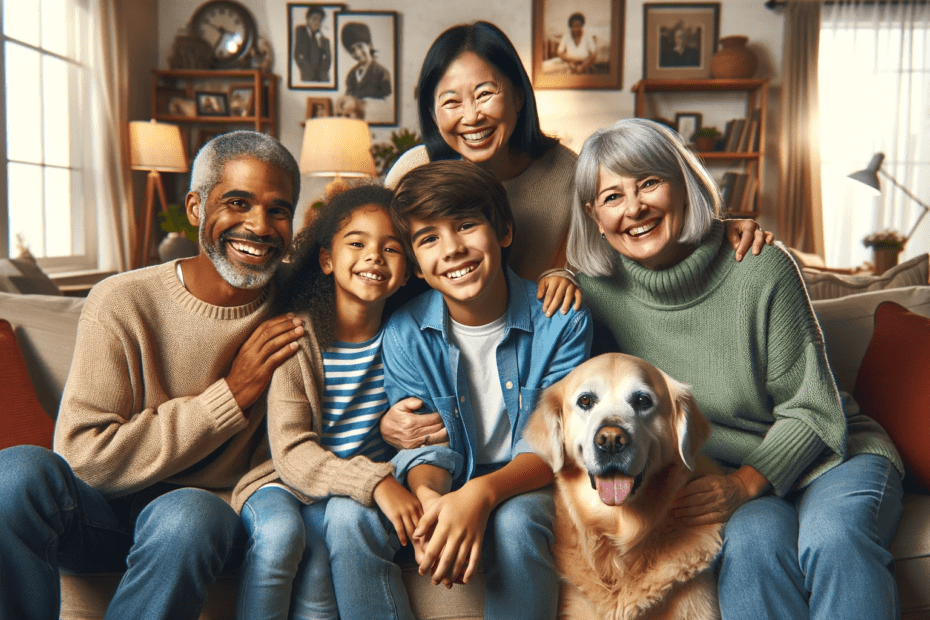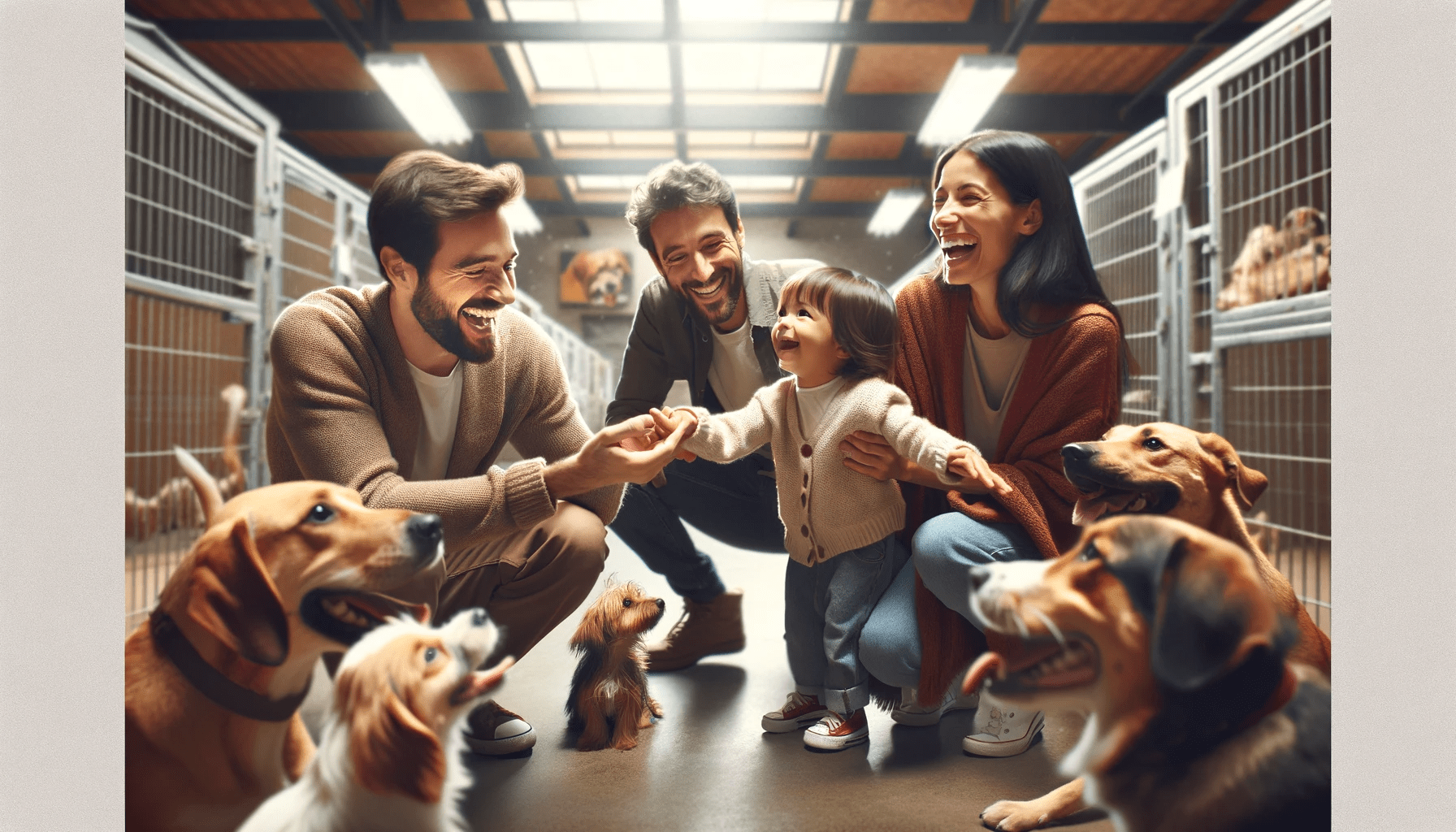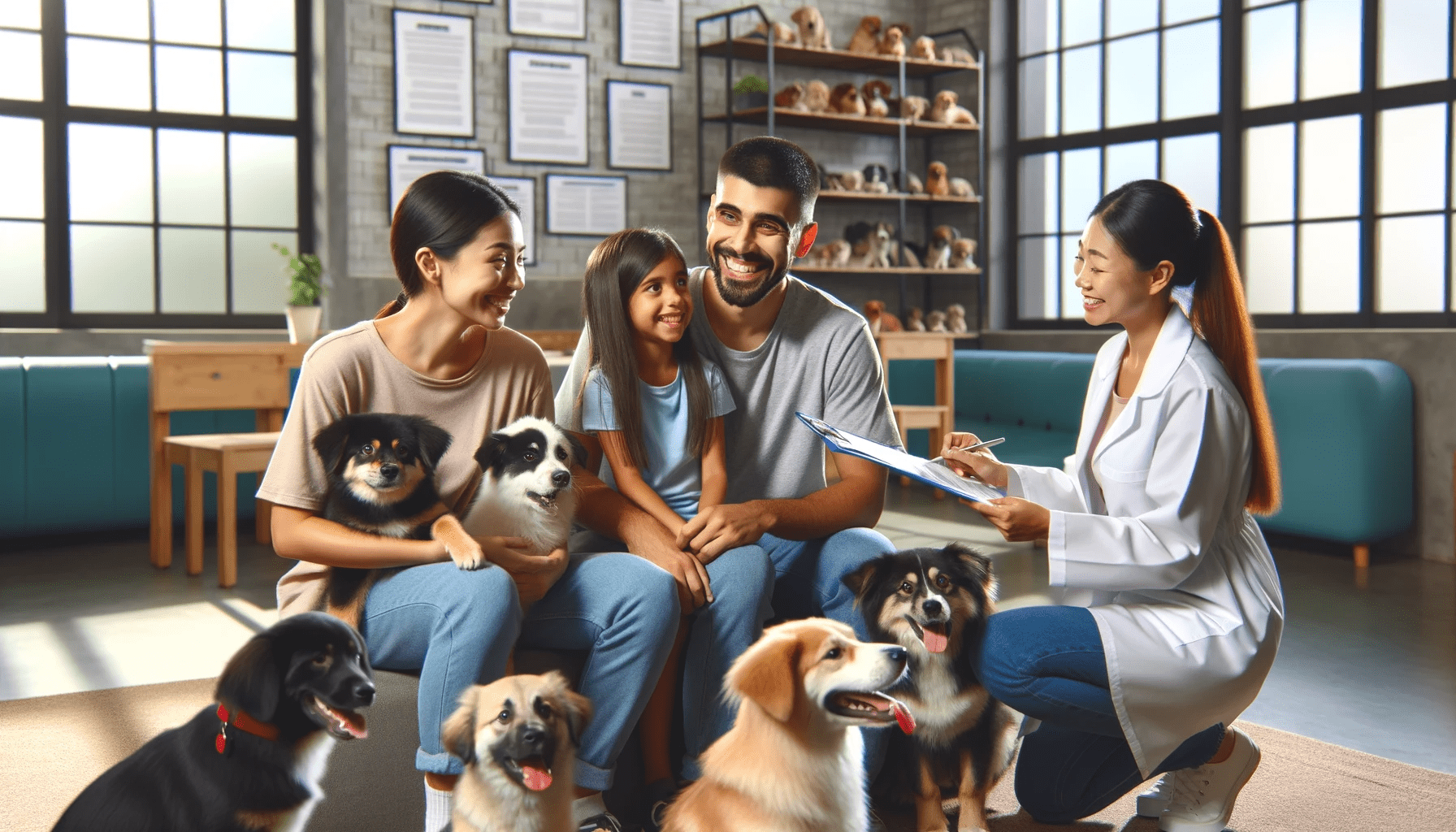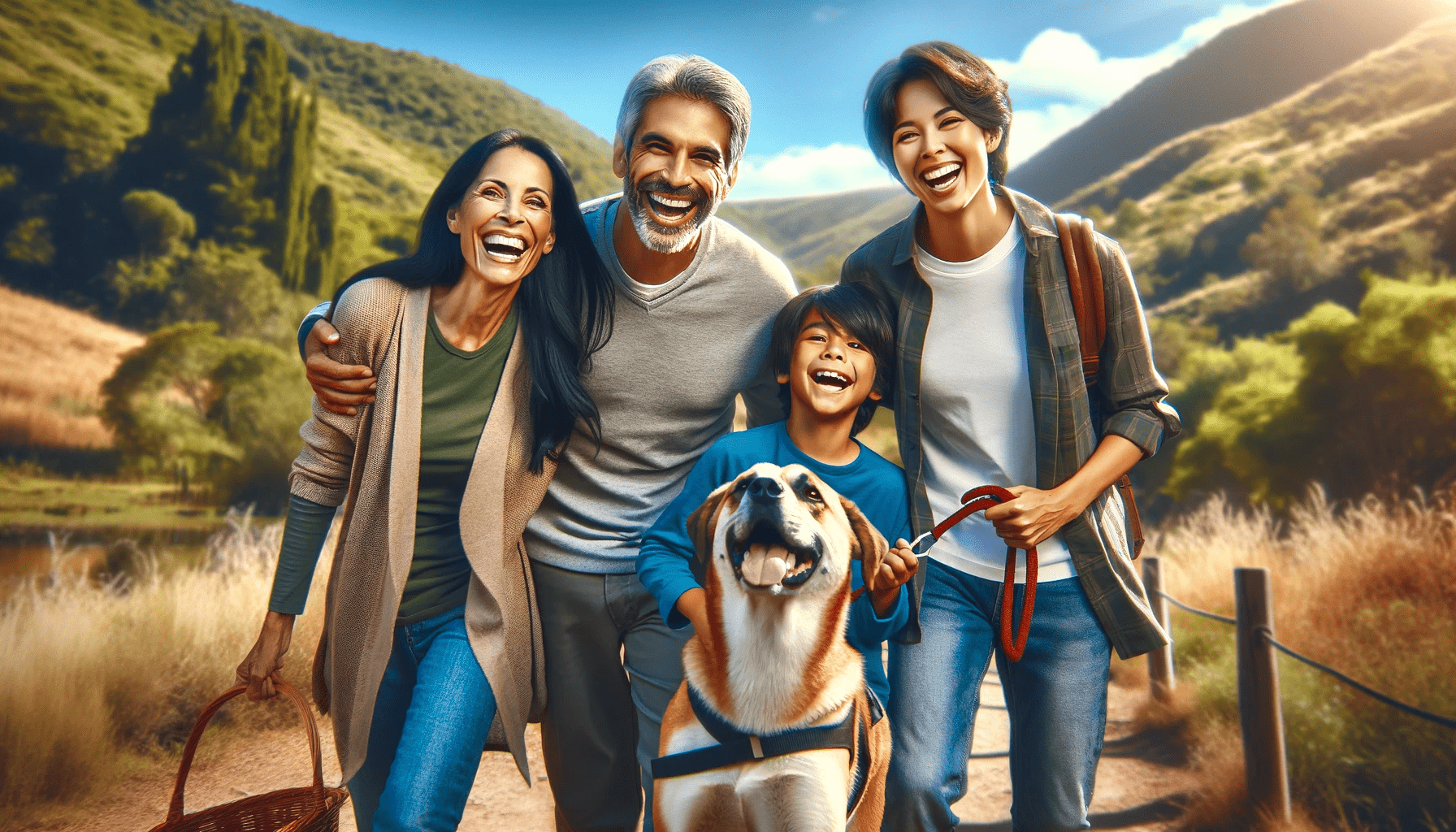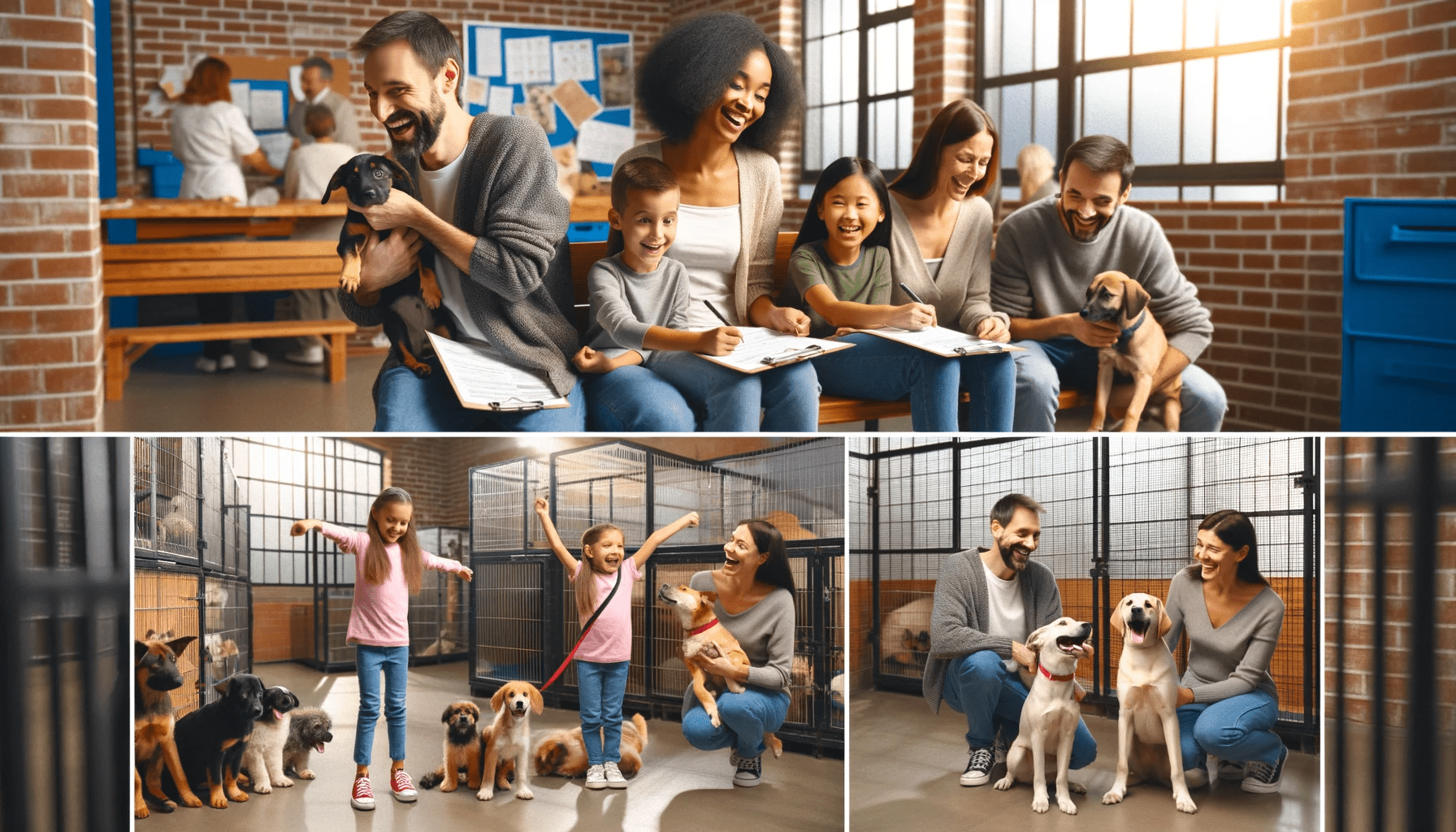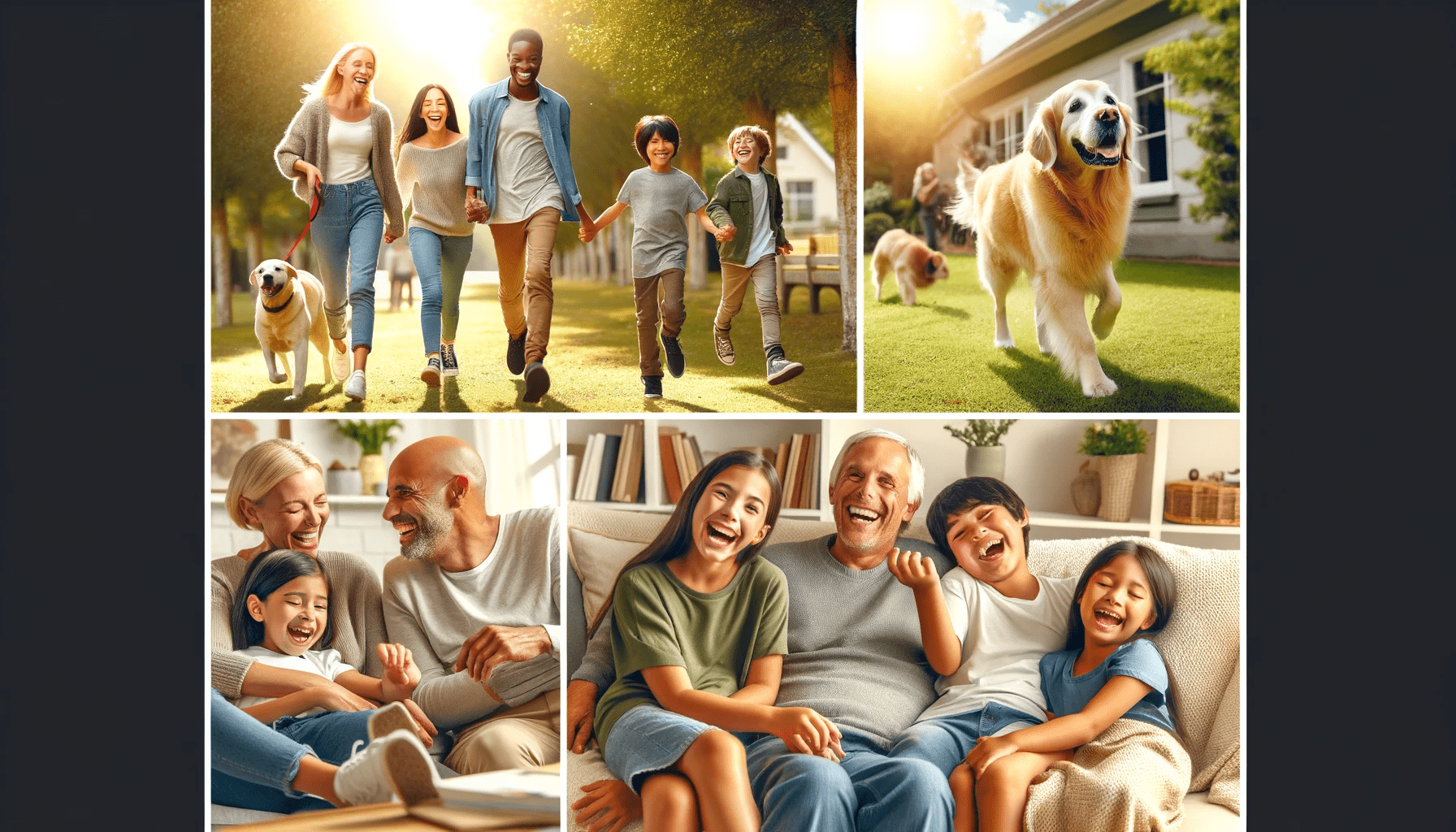Are you considering adding a furry friend to your family? Before you head to the shelter, consider the benefits of adopting an older dog.
With lower energy levels and exercise requirements, they are a perfect fit for busy households. Plus, they come pre-trained and well-behaved, saving you time and effort.
Their established temperament and personality make integration into your family routines a breeze. And by choosing an older dog, you'll be fulfilling the needs of senior dog adoptions.
Key Takeaways
- Older dogs have lower energy levels and exercise requirements, making them a good fit for busy households.
- They are already trained and well-behaved, reducing the need for house training and correcting destructive behaviors.
- Older dogs have established temperament and personality, making it easier to assess compatibility with other pets and adaptability to social cues.
- Older dogs can seamlessly integrate into family routines, have emotional stability, and often come with basic training and manners already established.
Lower Energy Levels and Exercise Requirements
If you're looking for a furry companion with lower energy levels and exercise requirements, an older dog's lifestyle may be a perfect fit for your family. Older dogs often have a calmer demeanor and are content with shorter walks or gentle play sessions. This lower energy level can be beneficial for families who've busy schedules or individuals who prefer a more relaxed lifestyle.
One of the health benefits of having an older dog is that they're less prone to certain health issues that can be common in puppies or younger dogs. For example, older dogs are less likely to suffer from hip dysplasia or certain genetic conditions that can affect their mobility. This means that you may have fewer veterinary expenses and worries about your pet's health.
Additionally, an older dog can provide unique bonding opportunities for your family. These dogs have typically had previous owners or experiences, which means they may already be well-trained and socialized. This can make the transition into your home smoother and allow you to focus on building a strong bond with your new furry friend.
Already Trained and Well-Behaved
An older dog's already trained and well-behaved nature makes them a valuable addition to your family. When considering adding a furry friend to your household, it's important to consider the level of maintenance and time commitment required. Here are three reasons why an older dog's existing training and good behavior can make them a lower maintenance and less time-consuming option:
- No need for house training: Puppies require extensive time and effort to house train. They often have accidents indoors and need consistent training to learn where and when to go. In contrast, older dogs have already been through this process and understand the concept of going outside to relieve themselves. This means less time spent cleaning up messes and more time enjoying your dog's company.
- Basic obedience skills: Older dogs have likely had some level of training already. They understand basic commands like sit, stay, and come, making them easier to handle and control. This can save you time and effort in training and ensure a smoother integration into your family.
- Established behavior patterns: Older dogs have typically outgrown the destructive behaviors often associated with younger dogs. They're less likely to chew on furniture, dig up your garden, or engage in excessive barking. Their more settled and predictable behavior means less time spent correcting and redirecting their actions.
Established Temperament and Personality
When choosing an older dog for your family, you can appreciate their established temperament and personality. Older dogs have had time to develop their unique traits and behaviors, making it easier for you to determine if their personality aligns with your family's lifestyle. Unlike puppies, whose personalities are still developing, older dogs have already established routines and behaviors. This can be beneficial for families who prefer a more predictable and consistent pet.
One advantage of an older dog's established temperament is their compatibility with other pets. If you already have pets at home, bringing in a new dog can be a delicate process. However, older dogs tend to be more adaptable and have a better understanding of social cues. Their established personalities make it easier to assess their compatibility with other animals. This can reduce the risk of conflicts and create a harmonious environment for all your furry family members.
Furthermore, an older dog's established routine can also make the transition into your family smoother. They're more likely to be house-trained and have a better understanding of basic commands. This means less time and effort spent on training, allowing you to focus on building a bond and enjoying your time together.
Easier Integration Into Family Routines
You can easily incorporate an older dog into your family's routines with their established temperament and personality. This is especially beneficial for families with busy schedules or young children who thrive on consistency and structure. Here are three reasons why integrating an older dog into your family's routines can be easier:
- Scheduling flexibility: Older dogs often have a more predictable routine and are accustomed to following a schedule. They're less likely to require constant attention and can adapt to your family's daily routines more easily. Whether it's meal times, walks, or playtime, an older dog can fit seamlessly into your existing schedule, making it easier to manage your time and commitments.
- Emotional stability: Older dogs have a more developed sense of emotional stability compared to younger dogs or puppies. They've already gone through the ups and downs of life and have learned to adapt to different situations. This emotional stability makes them less prone to anxiety or impulsive behavior, allowing for smoother integration into your family's daily routines.
- Easier training: Older dogs often come with basic training and manners already established. They're more likely to understand commands and have a better grasp of household rules. This makes it easier for them to fit into your family's routines without causing disruptions or conflicts. Additionally, their previous training can serve as a foundation for further training and bonding with your family.
Incorporating an older dog into your family's routines can be a rewarding and seamless experience. Their scheduling flexibility, emotional stability, and existing training make them a perfect addition to any family looking for a furry companion.
Fulfilling the Needs of Senior Dog Adoptions
To meet the needs of senior dog adoptions, it's important to consider their unique requirements and provide appropriate care. When it comes to senior dog health, regular veterinary check-ups are essential. Older dogs may have age-related health issues such as arthritis, dental problems, or vision and hearing impairments. With proper medical care, these conditions can be managed effectively, ensuring your senior dog's comfort and well-being.
Emotional bonding is also crucial for senior dogs. Many older dogs have experienced loss or separation from their previous owners, so they may require extra patience and understanding. Building a strong bond with your senior dog involves spending quality time together, engaging in activities they enjoy, and providing a calm and nurturing environment. Offering consistent routines and positive reinforcement can help them feel secure and loved.
Additionally, it's important to tailor their exercise and nutrition to their age and health condition. While senior dogs may not require as much physical activity as younger dogs, regular low-impact exercise, such as gentle walks or swimming, can help maintain their mobility and mental stimulation. A balanced diet, formulated for senior dogs, can support their specific nutritional needs and prevent age-related issues like obesity or digestive problems.
Frequently Asked Questions
What Are Some Potential Health Issues That Older Dogs May Have?
As your dog ages, potential health issues may arise. Regular vet care can help identify and address these issues early on. By choosing an older dog, you should be prepared to provide the necessary medical attention they may require.
How Do You Know if an Older Dog Is a Good Fit for Your Family's Lifestyle?
Assessing compatibility is key to determining if an older dog is a good fit for your family's lifestyle. Consider factors such as energy levels, exercise needs, and temperament. Adjusting routines can help create a harmonious environment for both dog and family.
Are There Any Specific Training Techniques or Methods That Work Best for Older Dogs?
When training an older dog, it's important to use gentle and positive reinforcement techniques. Behavior modification methods, such as desensitization and counterconditioning, can also be effective. Patience and consistency are key to helping them learn new behaviors.
What Should I Consider When Introducing an Older Dog to My Existing Pets?
When introducing an older dog to existing pets, there are challenges to consider in multi-pet households. Take time to properly introduce them, supervise interactions, and provide separate spaces if needed.
Are There Any Resources or Support Available for Families Adopting Older Dogs?
There are many resources and support available for families adopting older dogs. These can help you navigate health issues, find a dog that fits your lifestyle, and provide training techniques for introducing them to your existing pets.
Conclusion
In conclusion, choosing an older dog for your family can be a practical and fulfilling decision.
Their lower energy levels and exercise requirements make them suitable for families with a less active lifestyle.
Additionally, their already trained and well-behaved nature saves you time and effort in training.
Their established temperament and personality also make them easier to integrate into family routines.
Lastly, adopting a senior dog not only fulfills their needs but also provides them with a loving and caring home.
